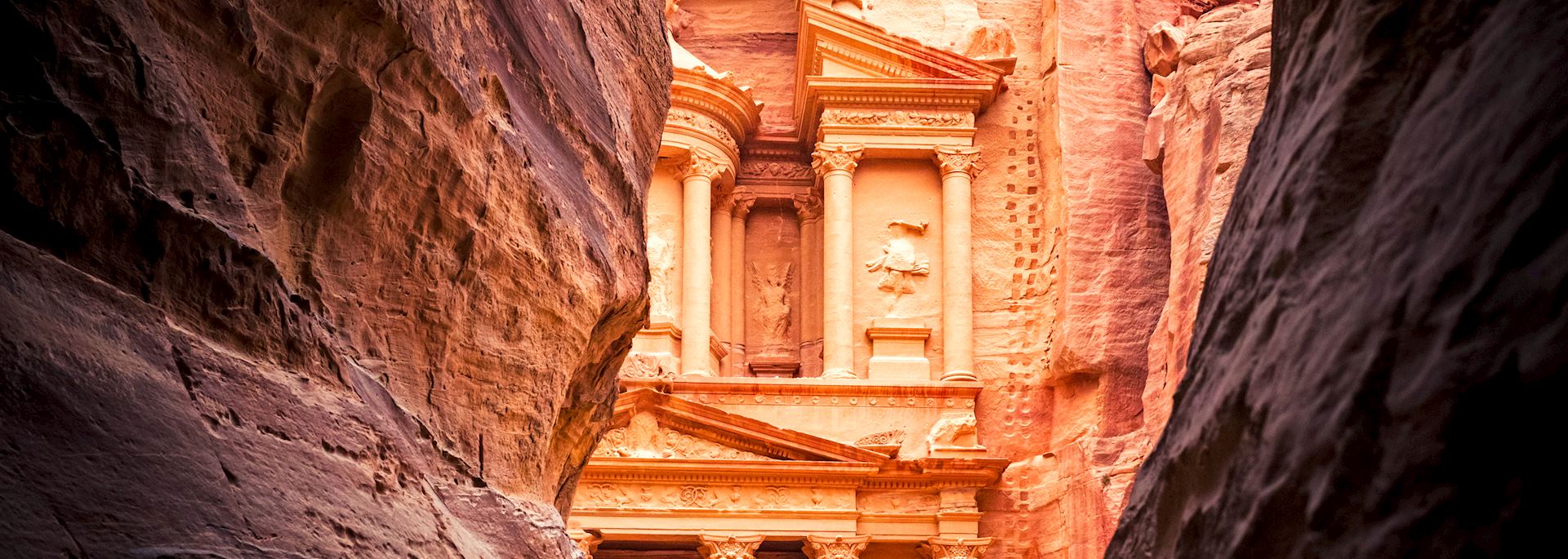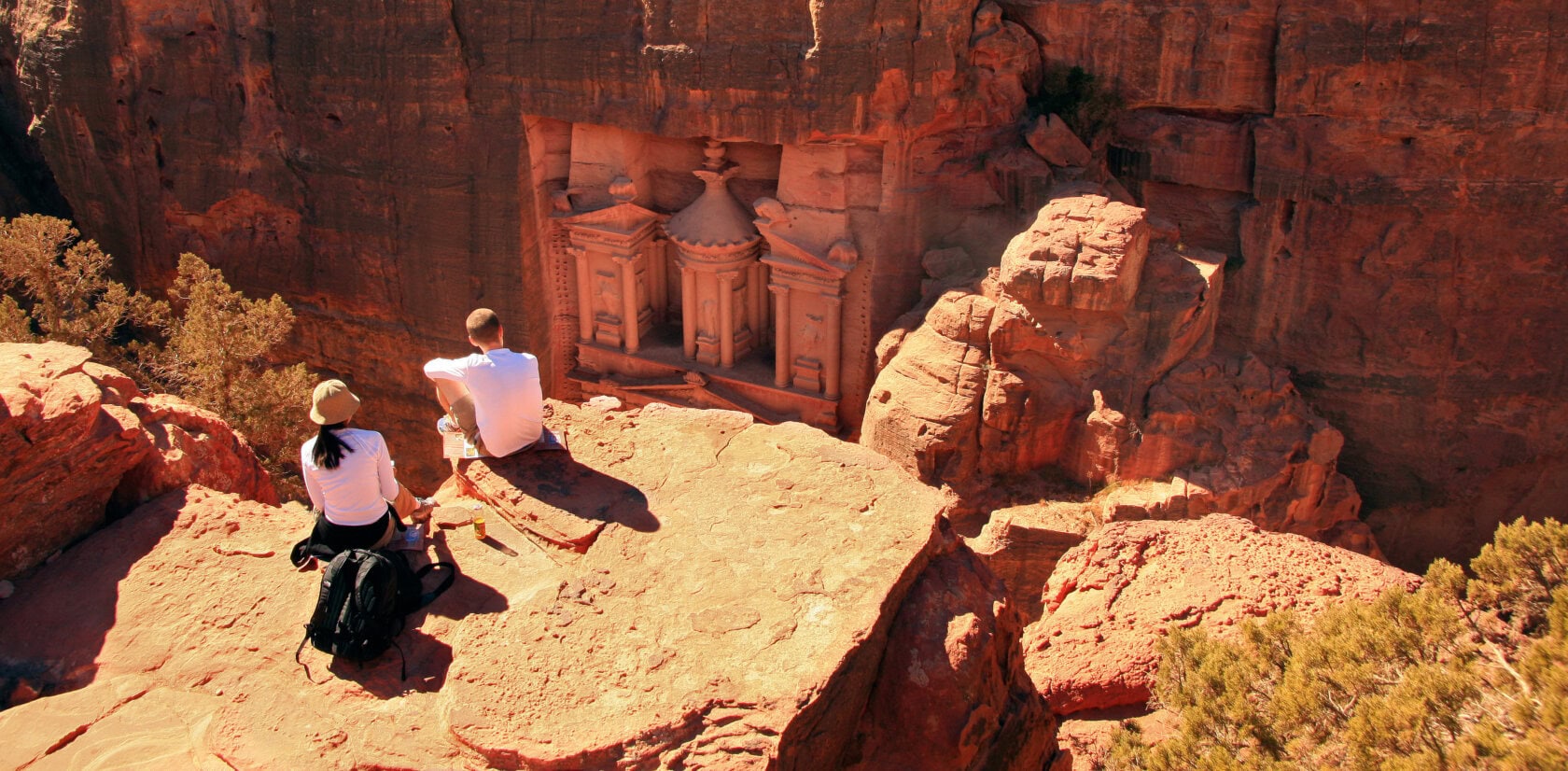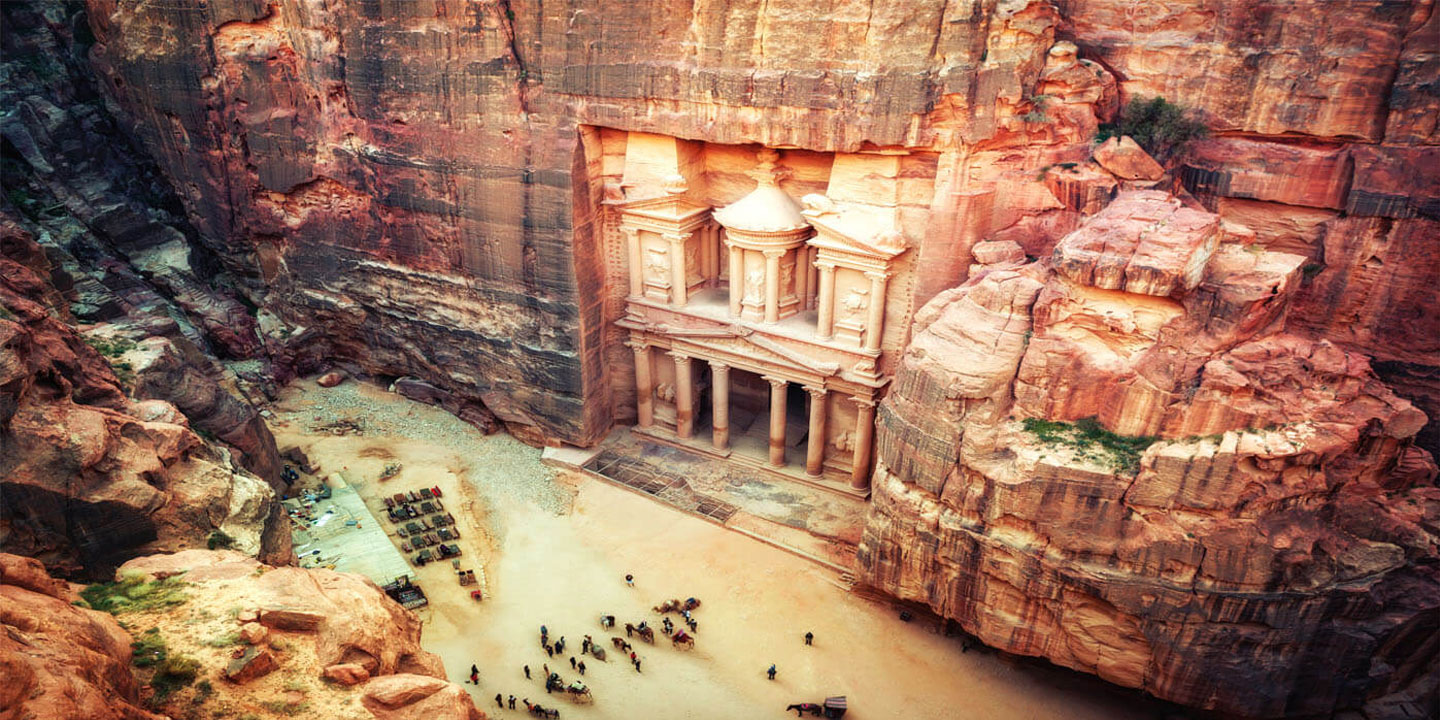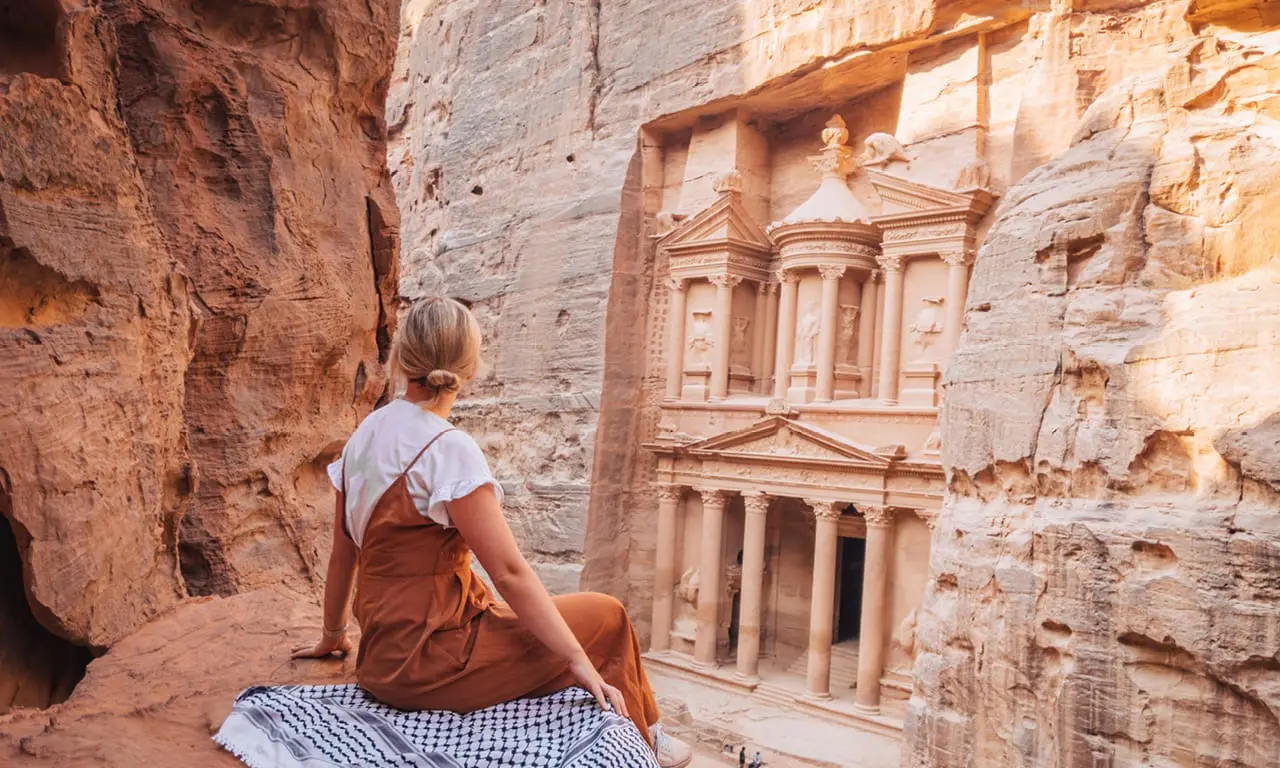Exploring Jordan and Egypt: A Cross-Cultural Tour for Europeans

Introduction
Overview of Jordan and Egypt
Jordan and Egypt, two jewel-like nations in the Middle East and North Africa, offer travellers a unique glimpse into a region steeped in history and rich in culture. While Jordan is renowned for its stunning archaeological treasures, such as Petra and the vast landscapes of Wadi Rum, Egypt boasts the iconic Pyramids of Giza and the Nile River, one of the world's longest waterways.
Both nations have a deep-rooted heritage shaped by centuries of diverse influences, including ancient civilisations, trade routes, and religions. As you traverse through bustling markets reminiscent of ancient bazaars and marvel at majestic ruins, the vibrant stories of these lands unfold, inviting exploration and connection.
Purpose of Cross-Cultural Tours
Cross-cultural tours not only serve as an opportunity to visit beautiful destinations but also allow for meaningful interactions with the local people and their customs. Engaging in such tours can lead to:
- Cultural exchange: Sharing experiences and perspectives enriches understanding and appreciation of different ways of life.
- Community support: Many tour options focus on local businesses, helping to sustain communities and promote fair trade.
- Personal growth: Travellers often find themselves transformed after stepping outside their comfort zones and immersing themselves in new environments.
Ultimately, the purpose of these tours is to encourage a deeper connection between individuals and the rich tapestry of cultures in Jordan and Egypt, fostering an atmosphere of respect and understanding.

Historical and Cultural Significance
History of Jordan and Egypt
Jordan and Egypt share an extensive and intertwined history that spans thousands of years. Both countries have been the cradle of ancient civilisations, witnessing the rise and fall of empires. Egypt, known for its magnificent pyramids, was home to the Pharaohs and is often called the "gift of the Nile" because of the river's importance to agricultural development. Jordan, on the other hand, has its own ancient ruins, such as those at Petra, which tell stories of the Nabateans, a people who thrived on trade.
- Key historical points:
- Egypt’s unification around 3100 BC marked the beginning of a powerful kingdom.
- Jordan has been a crossroad for various cultures, including the Romans and the Byzantines, leaving rich archaeological sites.
Cultural Influences and Traditions
The cultural landscapes of Jordan and Egypt are vibrant mosaics, shaped by historical encounters and socio-religious beliefs. The region is known for its diverse customs, languages, and practices, which significantly influence daily life.
- Cultural highlights include:
- Jordanian hospitality: Known as one of the most hospitable cultures, guests are often greeted with traditional coffee and tea, showcasing the nation's warmth.
- Egyptian festivals: Celebrations such as Eid al-Fitr and Sham El-Nessim offer a glimpse into local traditions, with families coming together to celebrate with food and communal activities.
By exploring these rich histories and cultural traditions, travellers deepen their understanding and appreciation of the true essence of Jordan and Egypt.

Top Attractions in Jordan
Petra: The Rose City
Petra, often referred to as the Rose City due to the pink hue of its sandstone cliffs, is undoubtedly Jordan's crown jewel. This UNESCO World Heritage site, carved into rock over 2,000 years ago, offers an otherworldly experience that leaves visitors in awe. As you walk through the narrow Siq, a gorge that leads to the breathtaking Treasury, the layer of history envelops you.
- Must-see highlights include:
- The Treasury (Al-Khazneh): This iconic structure is a magnificent façade that never fails to impress.
- The Monastery (Ad-Deir): A hike to this expansive site rewards you with panoramic views and a sense of peace.
Wadi Rum Desert Adventure
The majestic Wadi Rum, known for its dramatic desert landscapes, invites adventurers to explore its vastness. Often dubbed "The Valley of the Moon," this UNESCO World Heritage site is famous for its stunning rock formations and striking sunsets.
- Activities to enjoy:
- Jeep tours: A thrilling way to navigate the sandy terrain and witness breathtaking scenery.
- Camel trekking: A unique experience that allows for a slower pace to soak in the desert's beauty.
Dead Sea Experience
No trip to Jordan is complete without a dip in the Dead Sea, the lowest point on Earth. Renowned for its high saline content, swimming here is an experience unlike any other. Visitors can effortlessly float on the surface while indulging in the therapeutic properties of the mineral-rich mud.
- Tips for enjoyment:
- Don’t forget to apply the mud—it's not only fun but offers great skin benefits.
- The sunset views from the Dead Sea are simply spectacular, perfect for capturing memorable photographs.
By exploring these incredible attractions, visitors can truly appreciate the enchanting beauty and history that Jordan has to offer.

Top Attractions in Egypt
Pyramids of Giza
The Pyramids of Giza stand as a testament to ancient ingenuity and architectural brilliance. These monumental structures, especially the Great Pyramid of Khufu, have fascinated travellers for centuries. Standing tall against the desert backdrop, they serve as a glimpse into the grandeur of Egypt's past.
- Highlights to explore:
- The Sphinx: This enigmatic statue, with the body of a lion and the head of a pharaoh, is an integral part of the site.
- Exploring the interiors: While many external tours are fascinating, delving inside the pyramids unveils even more historical context.
Karnak Temple Complex
The Karnak Temple Complex in Luxor is among the largest religious complexes ever constructed. Walking through this vast site feels like stepping back in time, where the echoes of ancient rituals resonate within its walls.
- Notable features include:
- The Great Hypostyle Hall: Home to 134 columns, it's an architectural marvel that showcases the grandeur of Ancient Egyptian religious practices.
- Sacred Lake: This serene spot within the complex offers a moment of reflection amidst the monumental structures.
Nile River Cruise
A Nile River cruise is undoubtedly one of the best ways to experience Egypt's scenic beauty and ancient sites. Floating along the river lets you witness picturesque landscapes while visiting iconic destinations, such as Luxor and Aswan.
- Cruise highlights:
- Visiting temples: Stops along the way include magnificent sites like the Temple of Edfu and the Temple of Kom Ombo.
- Cultural experiences: Many cruises offer onboard entertainment, including traditional music and dance, enriching the overall journey.
Exploring these stunning attractions in Egypt provides a unique opportunity to connect with a civilisation that has shaped human history. Each destination tells its own story, waiting to be uncovered by curious travellers.
Cuisine and Culinary Experiences
Jordanian Food Delicacies
Jordanian cuisine offers a delightful blend of flavours influenced by its rich cultural heritage. Rooted in Bedouin traditions, the food is often prepared with fresh ingredients and aromatic spices. Dining in Jordan is a communal experience, showcasing the country’s renowned hospitality.
- Must-try dishes:
- Mansaf: This national dish features lamb cooked in a tangy yoghurt sauce, served over rice and garnished with almonds.
- Falafel: Crispy on the outside and soft within, these chickpea fritters are a popular street food, perfect for a quick snack.
- Tabbouleh: A fresh salad made from parsley, tomatoes, and bulgur, offering a refreshing complement to many dishes.
Taking part in a traditional Jordanian meal is not only a culinary journey but also an opportunity to connect with the local culture.
Egyptian Culinary Traditions
Egyptian cuisine is equally enticing, rich with historical influences and seasonal ingredients. Meals typically showcase a combination of flavours and textures, making them both comforting and satisfying.
- Iconic dishes to experience:
- Koshari: This hearty dish, comprising rice, lentils, and pasta topped with tomato sauce and fried onions, is a beloved street food staple.
- Fattah: A festive dish involving layers of rice and bread, often served with a spiced meat sauce for special occasions.
- Baklava: For dessert, this sweet pastry filled with nuts and honey offers a perfect finale after a hearty meal.
Sampling these delicious offerings allows travellers to truly appreciate the culinary richness of Egypt, enhancing their overall travel experience. Embracing local delicacies adds depth to the exploration, weaving together flavours with the fabric of the culture.

Language and Communication
Common Phrases in Arabic
Language can be a bridge or a barrier, and learning a few common phrases in Arabic can significantly enhance any travel experience in Jordan and Egypt. While English is spoken in many tourist areas, locals appreciate it when visitors make the effort to speak their language.
- Essential Arabic phrases to know:
- Marhaba (مرحبا): Hello
- Shukran (شكرا): Thank you
- Ahlan wa sahlan (أهلاً وسهلاً): Welcome
- Kam thaman (كم ثمن): How much does this cost?
Learning these phrases not only breaks the ice but also opens up conversations that often lead to more authentic experiences.
Importance of Language in Cross-Cultural Experiences
Understanding the language of the place being visited enriches the travel experience. Communication is not just about words; it also involves tone, gestures, and cultural nuances.
- Benefits of language in cross-cultural interactions:
- Building rapport: Speaking a local language fosters goodwill and often results in friendlier interactions.
- Cultural immersion: Engaging in conversations helps travellers gain insights into local customs and traditions.
- Navigating challenges: Knowing basic phrases can be helpful in everyday situations, such as bargaining in markets or asking for directions.
Ultimately, embracing the local language enhances the connection between visitors and the vibrant cultures of Jordan and Egypt, leading to memorable travels filled with meaningful exchanges.
Practical Tips for European Travellers
Visa Requirements and Travel Documents
Understanding visa requirements is essential for European travellers looking to explore Jordan and Egypt. Fortunately, both countries have streamlined processes to make travel more accessible.
- Visa tips include:
- Jordan: Many European nationals can obtain a visa on arrival for up to 30 days, but it's advisable to have proof of accommodation and a return flight. Consider applying for an e-visa for added convenience.
- Egypt: Travellers from select European countries can apply for an e-visa, making entry straightforward. Ensure your passport is valid for at least six months beyond your planned departure date.
Carrying multiple copies of essential travel documents, including your passport, visa, and insurance, can be beneficial in case of unexpected situations.
Health and Safety Precautions
Prioritising health and safety can enhance the travel experience significantly. It is advisable to stay informed about health recommendations specific to the regions you plan to visit.
- Key health tips:
- Vaccinations: Consult with a healthcare provider about recommended vaccines and health precautions before travelling, such as hepatitis A, typhoid, and COVID-19 boosters.
- Stay hydrated: The warm climate can be dehydrating, especially in desert areas. Always carry water, especially during excursions.
- Safety tips: Be aware of your surroundings and avoid isolated areas after dark. Using reputable transportation and following local advice can further ensure safety during your stay.
By taking the time to prepare in these areas, European travellers can enjoy a smoother, more enriching experience while exploring the historical and cultural wonders of Jordan and Egypt.

Cultural Etiquette and Customs
Greetings and Gestures
Navigating social interactions in Jordan and Egypt requires some understanding of local customs, particularly greetings and gestures. In these cultures, respect and warmth are paramount in social exchanges.
- Common greetings include:
- As-salamu alaykum (السلام عليكم): This traditional Arabic greeting means "peace be upon you" and is often reciprocated with Wa alaykum as-salam (وعليكم السلام), meaning "and upon you be peace."
- Handshakes: A firm handshake is common, often followed by a touch to the heart as a sign of sincerity. Be mindful that many men may not shake hands with women unless initiated.
Understanding the appropriate gestures is equally important, as some body language may signify different meanings. For example, a thumbs-up is seen as positive in many Western cultures but can be offensive in this region.
Dress Code and Behavioural Norms
Dressing modestly is crucial when visiting Jordan and Egypt, as these cultures value a sense of decency and respect.
- Tips for attire:
- For women: It is advisable to wear long skirts or trousers and tops that cover the shoulders. A light scarf can be useful for covering the head when visiting religious sites.
- For men: Long trousers and shirts with sleeves are preferred, especially in urban areas.
In terms of behaviour, maintaining polite manners—such as using “please” and “thank you” in both English and Arabic—goes a long way in fostering goodwill. Additionally, being punctual, especially for social invitations, is highly regarded.
Adhering to these cultural norms ensures a respectful and engaging experience, allowing travellers to connect meaningfully with the rich traditions of Jordan and Egypt.
Cross-Cultural Interactions
Experiencing Local Festivals and Events
Participating in local festivals and events is one of the most captivating ways to immerse oneself in the cultural vibrancy of Jordan and Egypt. These celebrations often highlight traditions, music, and culinary delights that bring communities together.
- Notable festivals to consider:
- Jordan Festival: Celebrated annually in the summer, this festival showcases art, theatre, and music from both Jordanian and international artists, making it a melting pot of cultures.
- Coptic Christmas in Egypt: This unique celebration, occurring on January 7, is marked by midnight masses and traditional feasts, allowing visitors to experience genuine local spirituality and warmth.
Attending these events offers a unique glimpse into everyday life, uniting locals and visitors through shared joy and traditions.
Homestay Programs and Community Engagement
For those looking to deepen their experience further, homestay programs provide an unparalleled opportunity for cultural exchange. Staying with a local family not only enhances travel but also allows for authentic interactions that are often hard to replicate in typical tourist settings.
- Benefits of homestays include:
- Culinary experiences: Guests often partake in daily meals, learning recipes and cooking techniques directly from local traditions.
- Cultural exchanges: Engaging in conversations with host families enriches understanding of societal values and customs.
Additionally, participating in community engagement projects—such as volunteering or attending workshops—can create lasting memories while contributing positively to local societies.
By embracing these cross-cultural interactions, travellers can forge connections that go beyond the typical tourist experience, leading to personal growth and a deeper appreciation of the diverse cultures in Jordan and Egypt.
Conclusion and Reflection
Impact of Cross-Cultural Tours
Cross-cultural tours in Jordan and Egypt offer transformative experiences that extend well beyond mere sightseeing. These journeys create opportunities for meaningful interactions, allowing travellers to forge genuine connections with local communities.
- Key benefits of cross-cultural tours:
- Cultural understanding: Engaging directly with local customs and people fosters empathy and appreciation for diverse cultures.
- Personal growth: Immersing in new environments challenges perceptions and promotes adaptability, enhancing overall personal development.
Through shared experiences in the local environment, travellers often leave with not just memories but a deeper appreciation for the world around them.
Personal Insights and Recommendations
For anyone contemplating a journey to these remarkable countries, involvement in cross-cultural tours is invaluable. From my observations, embracing local hospitality—like sharing meals or participating in traditional activities—can significantly enrich the experience.
- Recommendations for travellers:
- Research festivals and local events: Align your travel plans with cultural celebrations to immerse yourself in local life.
- Engage with locals: Learning a few phrases in Arabic can go a long way in breaking down barriers and forging connections.
In conclusion, the enriching experiences gained through cross-cultural tours in Jordan and Egypt not only enhance one’s understanding of these vibrant cultures but also foster a lasting respect for shared humanity. Travellers return transformed, carrying the essence of their adventures into their lives long after their journey ends.
